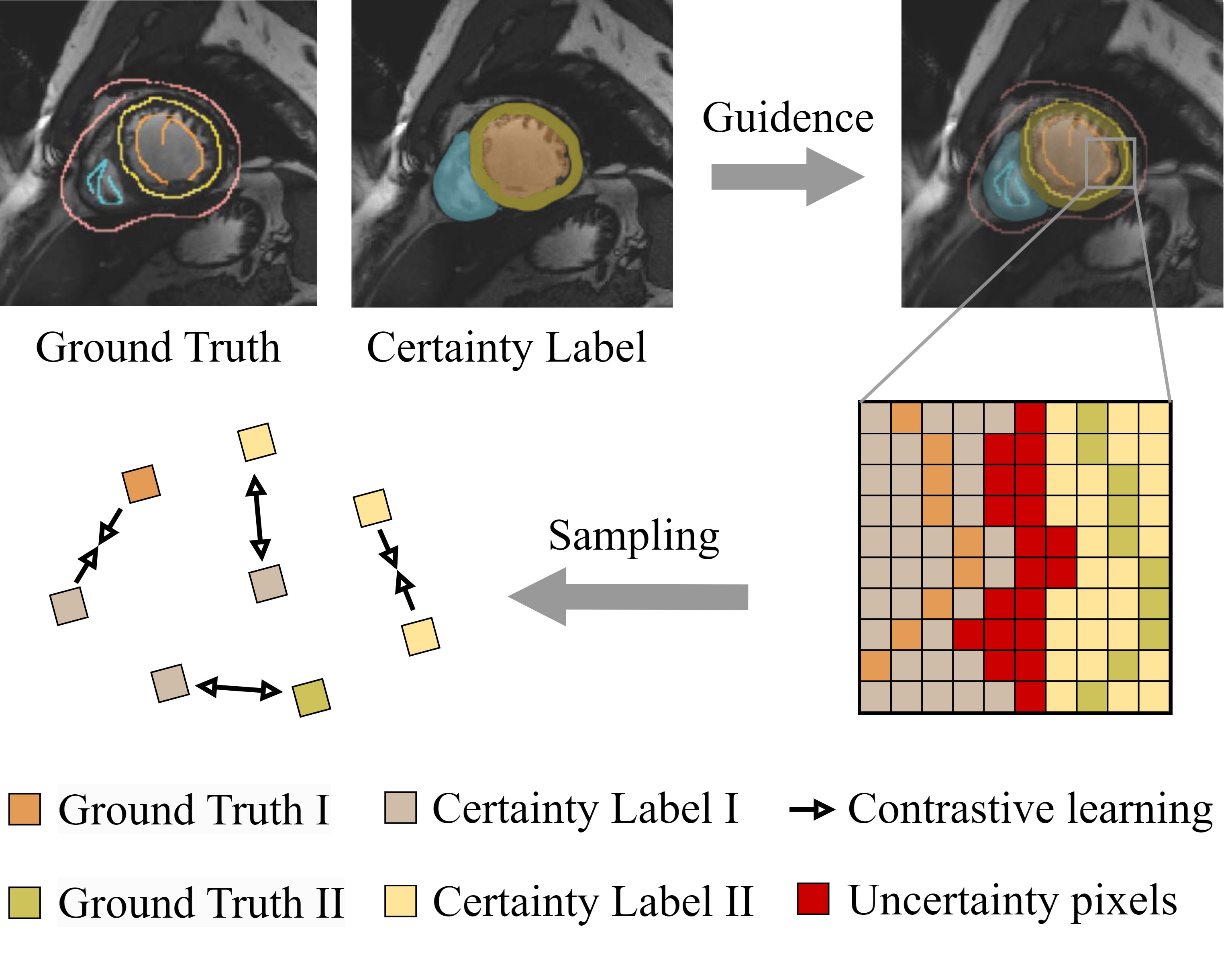PCLMix: Weakly Supervised Medical Image Segmentation via Pixel-Level Contrastive Learning and Dynamic Mix Augmentation
In weakly supervised medical image segmentation, the absence of structural priors and the discreteness of class feature distribution present a challenge, i.e., how to accurately propagate supervision signals from local to global regions without excessively spreading them to other irrelevant regions? To address this, we propose a novel weakly supervised medical image segmentation framework named PCLMix, comprising dynamic mix augmentation, pixel-level contrastive learning, and consistency regularization strategies. Specifically, PCLMix is built upon a heterogeneous dual-decoder backbone, addressing the absence of structural priors through a strategy of dynamic mix augmentation during training. To handle the discrete distribution of class features, PCLMix incorporates pixel-level contrastive learning based on prediction uncertainty, effectively enhancing the model's ability to differentiate inter-class pixel differences and intra-class consistency. Furthermore, to reinforce segmentation consistency and robustness, PCLMix employs an auxiliary decoder for dual consistency regularization. In the inference phase, the auxiliary decoder will be dropped and no computation complexity is increased. Extensive experiments on the ACDC dataset demonstrate that PCLMix appropriately propagates local supervision signals to the global scale, further narrowing the gap between weakly supervised and fully supervised segmentation methods. Our code is available at https://github.com/Torpedo2648/PCLMix.
PDF Abstract




